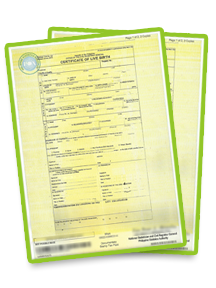
(Photo courtesy of James Ryan Artiaga/DFA-OPD)
The Department of Foreign Affairs’ Office of Consular Affairs (DFA OCA) officially launched the Philippine E-Apostille System on March 19, 2024, at the Bulwagang Apolinario Mabini in the DFA Main Building. The Philippine E-Apostille System, created in partnership with the Philippine Statistics Authority (PSA) and PSAHelpline.ph, automates the entire PSA certificate (birth, marriage, and CENOMAR) authentication process. Leveraging the technology of PSAHelpline.ph, the system makes it faster, easier, and safe for Filipinos to secure apostilles for PSA certificates for use abroad.
Key Figures Attend Ceremony
The event brought together key figures including the DFA OCA Authentication Division Director, Atty. Dyan Kristine Pastrana, DFA USec and former Philippine Ambassador to Singapore, USec Antonio Morales, Mr. Clemente Manaog (PSA Deputy National Statistician), Mr. Jun Yupitun (Managing Director, Pilipinas Teleserv), Mr. Jeffrey Villanueva (Director for Finance and Admin, Pilipinas Teleserv), and Mr. Bryan Zarzuela (Head of IT Department, Pilipinas Teleserv).
Assistant Secretary Adelio Angelito S. Cruz of the DFA's Office of Consular Affairs (OCA) formally opened the ceremony. In his welcome remarks, he emphasized that the launch of the E-Apostille system aligns with the DFA's goal of creating a fully digital consular service system, providing the public with convenient and location-independent access.
In his keynote address, USec Morales spoke about the Philippines' leadership in simplifying documentary processes for Filipinos. He then delivered the following remarks: “It is noteworthy to mention that the Philippines was the first country in ASEAN to accede to the Apostille Convention. We have continued our leadership in this area by being the first in ASEAN and the third in the Asia-Pacific region to fully implement the electronic Apostille.”
A Simple Way to Get Your Documents Authenticated

The E-Apostille System offers a more convenient way to acquire apostilles for PSA certificates like birth, marriage, and CENOMAR. Here is how it works:
- Log on to e-app1.apostille.gov.ph
- Choose the PSA certificate you need and pay through any of the payment channels available. The PSA certificate will be sent to the DFA OCA in electronic format.
- Log on to the Landbank LinkBiz portal to pay for your E-Apostille application.
- The E-Apostille will be sent to your email and this may be submitted to the requesting institution.
-
The E-Apostille may be verified in three ways:
- By clicking on the Verified Link included on the E-Apostille cover sheet
- By scanning the QR Code on the E-Apostille cover sheet
- By using the Adobe Acrobat Reader.
Official Launch

(Photo courtesy of James Ryan Artiaga/DFA-OPD)
The event marked a significant step towards a more efficient documentary process. The Philippines upholds the Apostille Convention, with over 126 member countries generally accepting e-apostilles. The DFA recommends verifying the specific requirements of the foreign entity requesting the authenticated document. Verification of Philippine e-apostilles can be done conveniently through the dedicated E-Apostille verification page on the DFA website or by opening the E-Apostille PDF with a PDF reader software.
The DFA has issued a significant number of paper Apostilles since 2019, exceeding two million. Notably, over 40% of these Apostilles pertain to civil registry documents issued by the PSA.
The new E-Apostille System signifies a positive development for Filipino citizens requiring authenticated PSA certificates for international transactions. Filipinos abroad, or those with international aspirations, can now secure authenticated PSA certificates faster, more conveniently, and with enhanced security. This translates to a smoother experience, saving valuable time and reducing stress – a welcome change for Filipinos seeking new opportunities or reconnecting with loved ones overseas.



